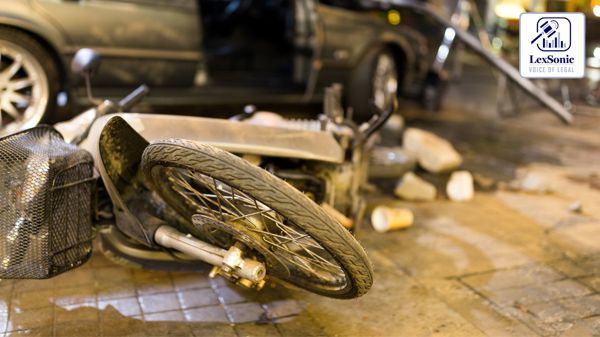The Supreme Court has held that the lawyers of a deceased victim of an accident can still pursue a motor accident compensation claim, even though the death is not immediately attributable to the injuries received. The Court explained the impact of the 2019 amendment to the Motor Vehicles Act which provides such claims to be survivant to the legal heirs.
The matter arose from an appeal against the compensation awarded by the Motor Accidents Claims Tribunal (MACT) and subsequently changed by the High Court. The injured, who had 100% disability and remained in a vegetative state for 11 years, died in April 2024 while the appeal was pending. His legal representatives were substituted as appellants.
Preliminary Objection Rejected:
The insurance company raised objections to the continuation of proceedings, contending that compensation for personal injury cannot be??passed on to the heirs, basing their argument on Section 306 of the Indian Succession Act, 1925, and previous High Court judgments. The Court, however, overruled this contention, citing the express language of the amendment to Section 166 of the Motor Vehicles Act.
The inserted clause categorically provides that the right to recover compensation for injury survives to legal representatives whether or not the death has any connection with the injury. The Court also referred to its earlier rulings in Oriental Insurance Co. Ltd. v. Kahlon and Meena v. Prayagraj, which had acknowledged the wider meaning of "estate" in this regard.
Assessment of Compensation:
Coming to the claimant's plea for higher compensation, the Court reevaluated the income. While the Tribunal had originally accepted Rs.8,000 monthly but subsequently lowered it to Rs.4,030 on remand, the top court considered oral evidence and current wage norms for the year 2013. Relying on Ramachandrappa v. Manager, Royal Sundaram Alliance Insurance Co. Ltd., the Court quantified monthly income at Rs.9,000 and added 25% for future possibilities, taking note of the 100% permanent disability.
The Court modified the multiplier from 14 to 11, taking into account that the victim lived only 11 years following the accident, rather than using the higher life span assumed in standard tables.
Final Award:
The overall compensation was recast at Rs. 20,37,095, including income loss, medical treatment, nourishment, pain and suffering, and personal attendant care for more than ten years. Interest at 9% per annum was directed from the date of presentation of the claim petition up to realization, amending the previous order of the High Court which had restricted the period of interest.
The Court ordered deducting the already paid amounts and paying the remainder within three months.
Outcome:
This judgment further enforced by the Supreme Court that compensation of accidents is a part of the estate of the victim, which transfers to legal heirs. It emphasized that fair compensation should equal out fairness—neither becoming a windfall for heirs nor taking away from the victim's estate rightful restitution.
The appeal was granted, and pending applications were dealt with.
Section 166, Motor Vehicles Act - 1988
Motor Vehicles Act, 1988
Section 306, Indian Succession Act - 1925
Indian Succession Act, 1925

